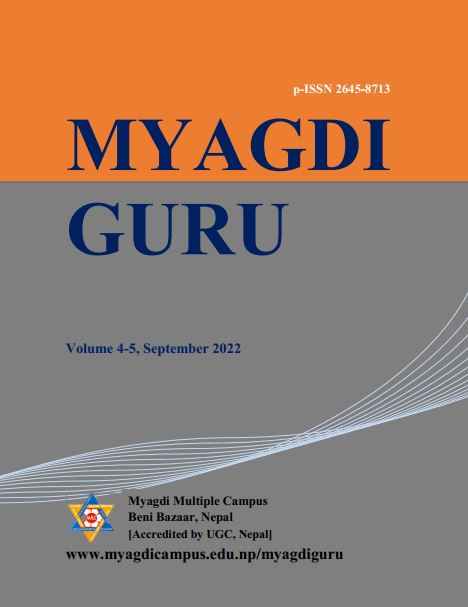Digital Ethics and Mindful Circulation: Navigating the Complexities in the Digital Age
DOI:
https://doi.org/10.3126/mg.v5i1.70615Keywords:
Algorithm, circulation, digital ethics, digital writing human-centered, post-truthAbstract
In the digital age, characterized by unprecedented connectivity and rapid information exchange, the dynamics of writing, communication, and ethical considerations have undergone profound transformations. This paper aims at exploring why the ethical implications of digital communication are important during circulating and disseminating information in the context of digital ethics. The primary texts for this paper are tweets by former President of United States of America, Donald Trump and some other posts on social media. To support the claim, the researchers use a wide range of scholars such as L. Floridi who focuses on digital ethics and L.E. Gries who discusses “circulation” as a central concept in digital rhetoric. This paper also argues that algorithms and big data applications should prioritize improving human well-being, dignity, rights, and autonomy. For that, the researchers have used Gilli A. et al.’s concept of “human-centered” writing, M.C. Murphy’s insights about the role of social media algorithms, and B. McComiskey’s concept of “post-truth.” This paper concludes that digital technologies and algorithms should shape the ethical landscape of information dissemination thereby emphasizing the importance of ethical frameworks in navigating the complexities of digital communication to safeguard societal values, truthfulness, and democratic discourse amidst the challenges posed by misinformation and capitalist influences.
Downloads
Downloads
Published
How to Cite
Issue
Section
License

This work is licensed under a Creative Commons Attribution 4.0 International License.
This license enables reusers to distribute, remix, adapt, and build upon the material in any medium or format, so long as attribution is given to the creator. The license allows for commercial use.




